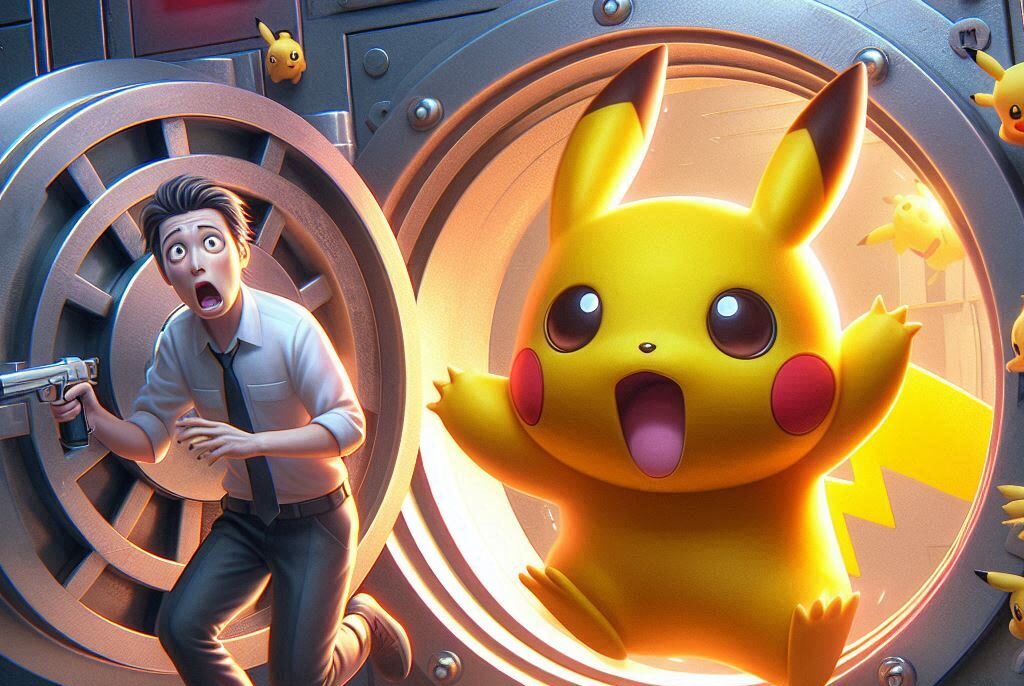Pokémon Developer Game Freak Hacked, Nintendo Switch 2 Codename Leaked

Game Freak, the developer behind the Pokémon franchise, recently confirmed a significant data breach in August 2024. Hackers gained illegal access to the company’s servers, exposing personal information of 2,606 current, former, and contract employees, including names and email addresses. While the company issued an apology and claimed the vulnerability has since been fixed, the fallout has been immense.
What Was Leaked?
Alongside employee information, the hackers managed to steal and leak a treasure trove of sensitive data, including:
- Codenames for Pokémon Games: The breach revealed that the 10th generation Pokémon games are codenamed “Gaia,” with versions dubbed “K” and “N” to signify dual releases. These games are reportedly planned for both the current Nintendo Switch and its successor.
- Nintendo’s Next-Gen Console: Codenamed “Ounce,” details of Nintendo’s upcoming console have been leaked, confirming it as the target platform for several major upcoming titles.
- Unreleased Pokémon Games: The leak included information on a Pokémon MMO codenamed “Synapse,” co-developed with another studio, as well as plot details for an unannounced Pokémon live-action Netflix series and an unreleased sequel to Detective Pikachu titled The Great Detective Pikachu.
- Source Code from Legacy Titles: Hackers also accessed source code for classic Pokémon titles like HeartGold, SoulSilver, Black 2, and White 2, along with unused game assets and music. This level of access to legacy code raises concerns about how intellectual property is being stored and protected within the gaming industry.
- Movie and TV Leaks: Internal documents suggest that a trilogy of live-action Pokémon films, potentially involving the Game Boy, was considered, with plans for at least two more sequels to the 2019 Detective Pikachu movie. Other leaked details point to a Netflix collaboration on a Pokémon live-action series, further intensifying the impact of the breach.
How It Happened
Game Freak’s servers were illegally accessed, with hackers exploiting a vulnerability that has since been patched. The breach remained under wraps until October 2024, when leaked information began spreading across gaming communities. Game Freak apologized to affected employees and took steps to rebuild its security infrastructure, but the damage was done.
This breach is reminiscent of Nintendo’s infamous 2020 “Gigaleak,” which similarly exposed canceled games, source code, and proprietary tools. But the Game Freak hack highlights an even larger problem—an alarming gap in the security protocols of even the most well-established gaming companies.
Could This Have Been Prevented? The Zerocrat Solution
The Game Freak breach underscores the urgent need for better security practices within large organizations handling highly sensitive data. This is where Zerocrat, a privacy-focused accounting SaaS solution, could have made a difference.
Zerocrat employs a zero-knowledge encryption model, which ensures that even if hackers were to gain access to the system, the data they retrieve would be completely useless to them. This advanced encryption method means that only the user has the key to decrypt their own information—neither Zerocrat nor any third party has access to sensitive details. If Game Freak had implemented such a model, the stolen Pokémon codenames, source code, and internal documents would have remained unreadable and safe from exploitation.
Beyond encryption, Zerocrat also offers AES-256 encryption for all data in transit, ensuring that sensitive information remains protected even as it moves between devices or servers. Combined with a focus on privacy and minimal third-party dependencies, Zerocrat’s architecture could have significantly reduced Game Freak’s exposure in the event of a breach.
The Real Cost of Inadequate Security
For Game Freak, the fallout of this data breach goes beyond just the loss of employee trust and proprietary information. The exposure of sensitive project details, source code, and unannounced titles could cost the company millions in lost revenue and damaged partnerships. This breach not only puts Game Freak’s reputation at risk but also endangers the integrity of its relationship with Pokémon fans and other stakeholders in the gaming industry.
With data breaches becoming more frequent and more damaging, it’s clear that the old ways of handling digital security are no longer enough. The Game Freak incident serves as a reminder that companies need to rethink their approach to data protection. Solutions like Zerocrat, with their emphasis on privacy and zero-knowledge encryption, represent the future of secure data handling in an increasingly vulnerable world.
In today’s landscape, even the most beloved franchises are vulnerable to attack. As companies like Game Freak scramble to patch vulnerabilities and recover from breaches, Zerocrat stands as a beacon for the next generation of data security—one where privacy isn’t just an option, but a standard.
